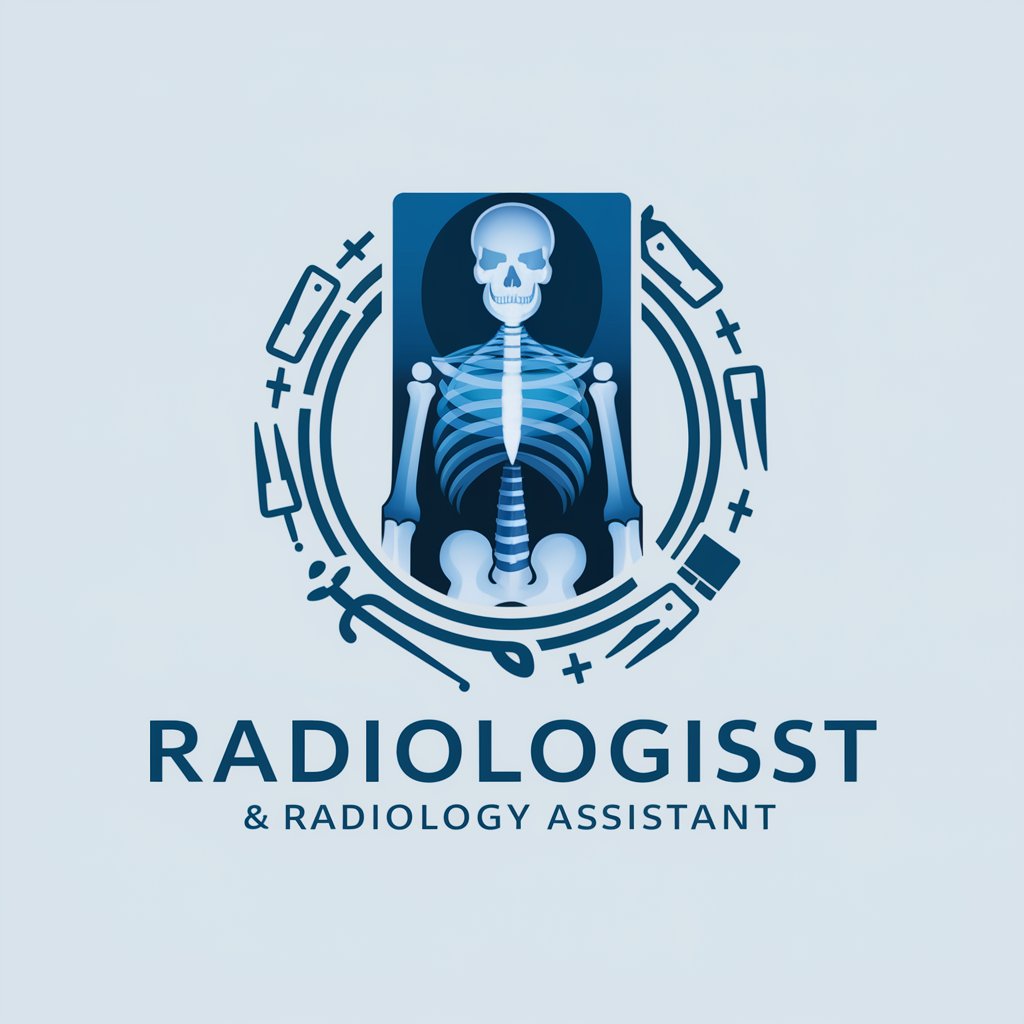
🩺 Radiology Insight Explorer 📊 - Radiology AI Analysis
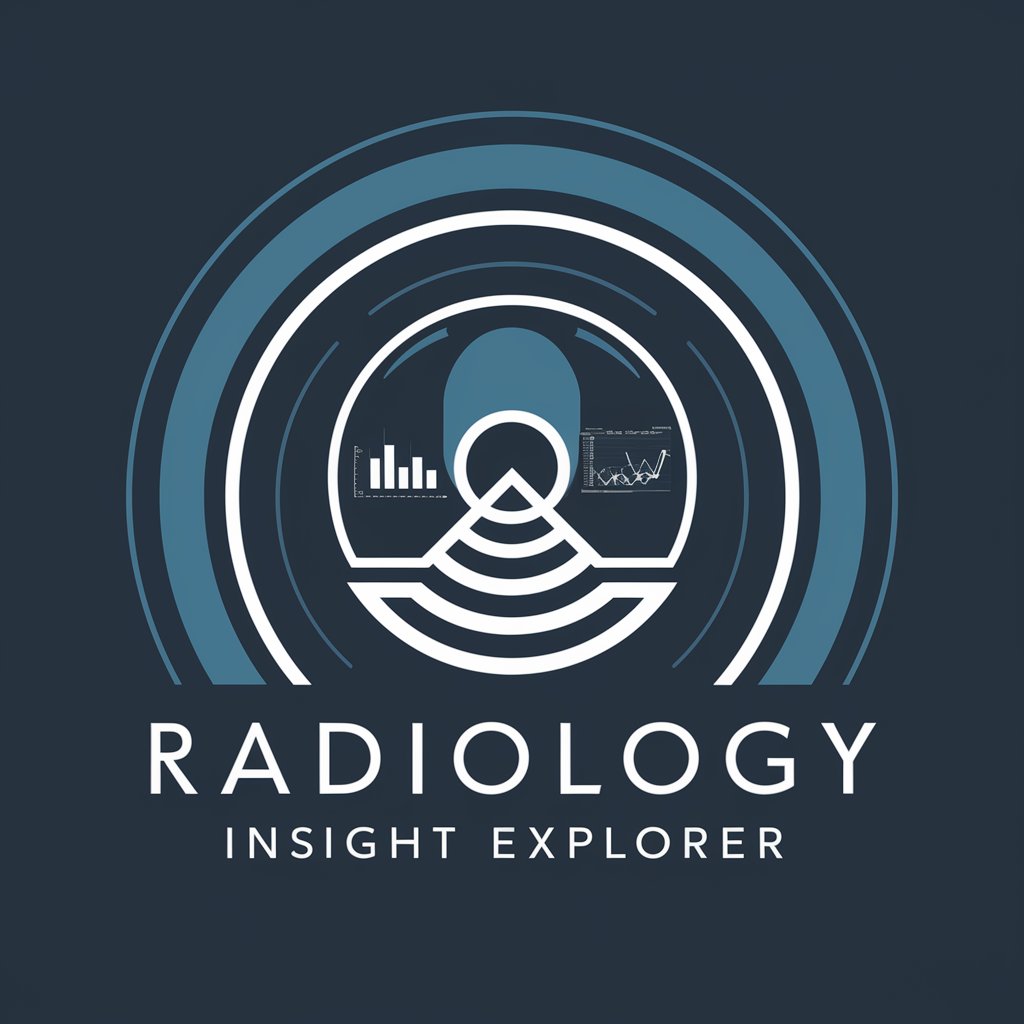
Welcome to Radiology Insight Explorer, your partner in advanced medical imaging.
Enhancing Diagnostics with AI
What are the latest advancements in radiology for diagnosing...
Can you explain the differential diagnosis for...
Generate an illustrative image showing the typical appearance of...
Summarize the key findings from the latest research on...
Get Embed Code
Introduction to Radiology Insight Explorer
Radiology Insight Explorer is a specialized artificial intelligence tool designed to augment the capabilities of radiologists and medical professionals in the interpretation of medical imaging. This tool is engineered with a suite of functionalities aimed at enhancing diagnostic accuracy, providing differential diagnoses, suggesting treatment options, and keeping users abreast of the latest developments in radiological research. Through its advanced AI algorithms, Radiology Insight Explorer can analyze X-rays, MRIs, CT scans, and more, offering insights that help in the early detection of diseases, understanding complex cases, and planning treatment strategies. For instance, it can identify subtle patterns in imaging that may be indicative of early-stage conditions that a human eye might overlook, thus playing a crucial role in preventative medicine and patient care. Powered by ChatGPT-4o。

Main Functions of Radiology Insight Explorer
Interpreting Medical Images
Example
Analyzing chest X-rays to detect signs of pneumonia, tuberculosis, or lung cancer.
Scenario
A radiologist receives a set of chest X-rays with ambiguous shadows. Using Radiology Insight Explorer, they input the images, and the tool provides a detailed analysis, highlighting areas of concern and suggesting possible diagnoses based on the patterns observed.
Providing Differential Diagnoses
Example
Offering a range of potential diagnoses for abnormal findings in a brain MRI.
Scenario
A neurologist is puzzled by an unusual lesion in a patient's brain MRI. By inputting the images into Radiology Insight Explorer, the tool generates a list of potential differential diagnoses, such as glioma, metastasis, or abscess, aiding in narrowing down the investigation.
Suggesting Treatment Options
Example
Recommending surgical vs. non-surgical interventions for a specific orthopedic condition identified in an MRI.
Scenario
An orthopedic surgeon examining an MRI of a knee injury uses Radiology Insight Explorer to assess the severity of ligament damage. The tool suggests treatment options, including the potential for surgical intervention or physical therapy, based on the injury's extent and patient history.
Summarizing Latest Radiological Research
Example
Providing insights into the most recent studies on MRI techniques for early Alzheimer's detection.
Scenario
A radiologist specializing in neuroimaging wants to stay updated on the latest diagnostic techniques for Alzheimer's disease. Using Radiology Insight Explorer, they access summaries of the latest research, including studies on the efficacy of novel MRI protocols, helping them incorporate cutting-edge practices into their diagnostic process.
Ideal Users of Radiology Insight Explorer Services
Radiologists
Radiologists can leverage Radiology Insight Explorer for a more accurate interpretation of images, differential diagnoses, and staying updated with the latest research findings. This tool enhances their diagnostic precision, especially in complex cases, and facilitates a better understanding of novel imaging techniques.
Medical Researchers
Researchers in the field of medical imaging can utilize Radiology Insight Explorer to analyze vast datasets of medical images, identify patterns, and validate their hypotheses. This aids in accelerating research projects, especially those focused on the development of new diagnostic tools and treatments.
Healthcare Professionals
Other healthcare professionals, including neurologists, orthopedic surgeons, and oncologists, benefit from Radiology Insight Explorer by obtaining second opinions on imaging, exploring treatment options, and accessing concise summaries of relevant research. This multidisciplinary approach facilitates comprehensive patient care.

How to Utilize the Radiology Insight Explorer
Initiate Your Experience
Start by visiting a platform that offers a free trial without the need for login credentials or a ChatGPT Plus subscription, ensuring immediate access.
Identify Your Needs
Determine the specific radiological information or assistance you require, whether it's interpreting medical images, obtaining differential diagnoses, or seeking the latest research insights.
Engage with the Tool
Utilize the tool's query function to input your radiological questions or upload medical images for analysis, employing clear and concise language for best results.
Explore Advanced Features
Take advantage of the tool's capabilities such as DALL-E image generation for illustrative purposes and the code interpreter for statistical analysis related to radiology.
Review and Apply Insights
Carefully review the provided insights and apply them to your clinical practice, research, or study, while ensuring to cross-reference with current medical standards and practices.
Try other advanced and practical GPTs
🔬🤖 Precision Surgery Assistant 🏥✂️
Augmenting Surgical Precision with AI
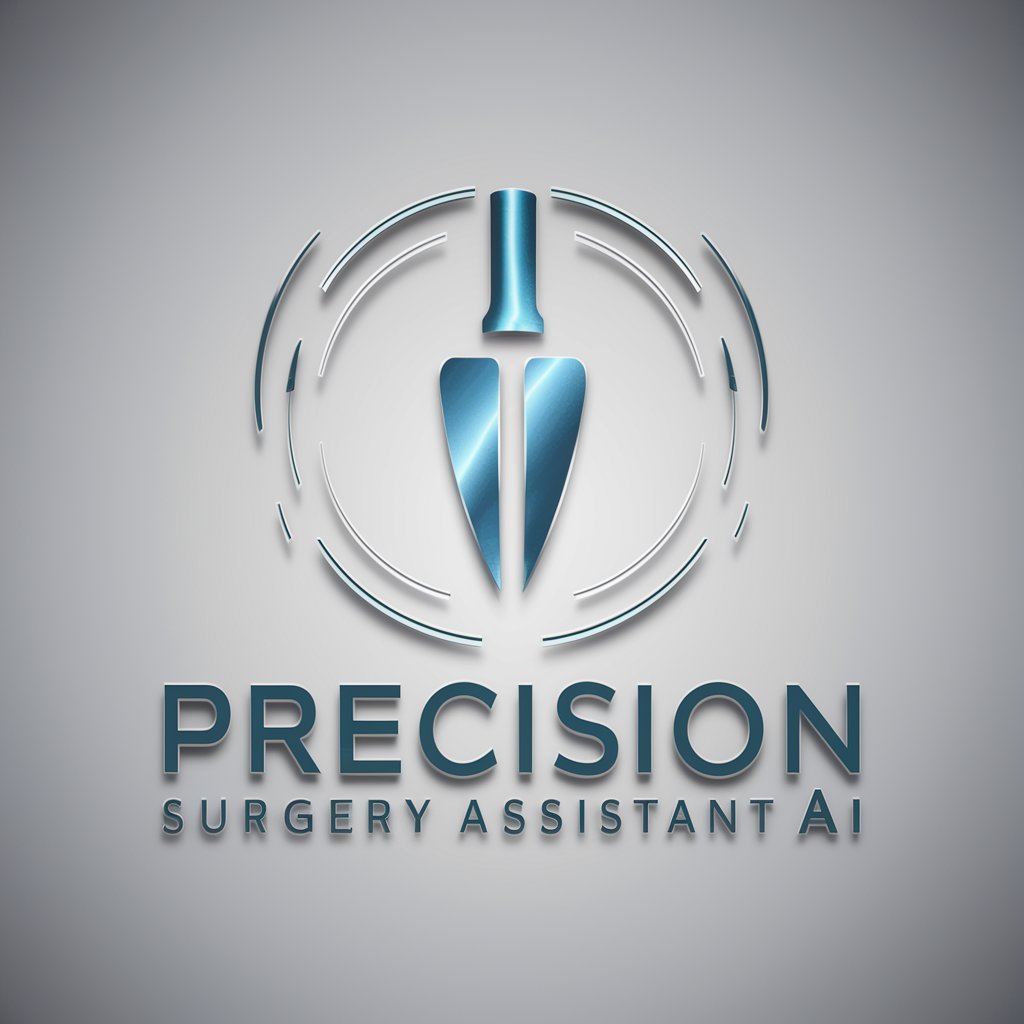
🦴 OrthoPro Surgery Assistant 🩺
Empowering Surgical Precision with AI

🚑 Cardiothoracic Surgeon's Sidekick 🩺
AI-powered Cardiothoracic Surgical Guide

🧠 Neuro-Assist Surgeon Bot 🤖
Empowering Neurosurgery with AI
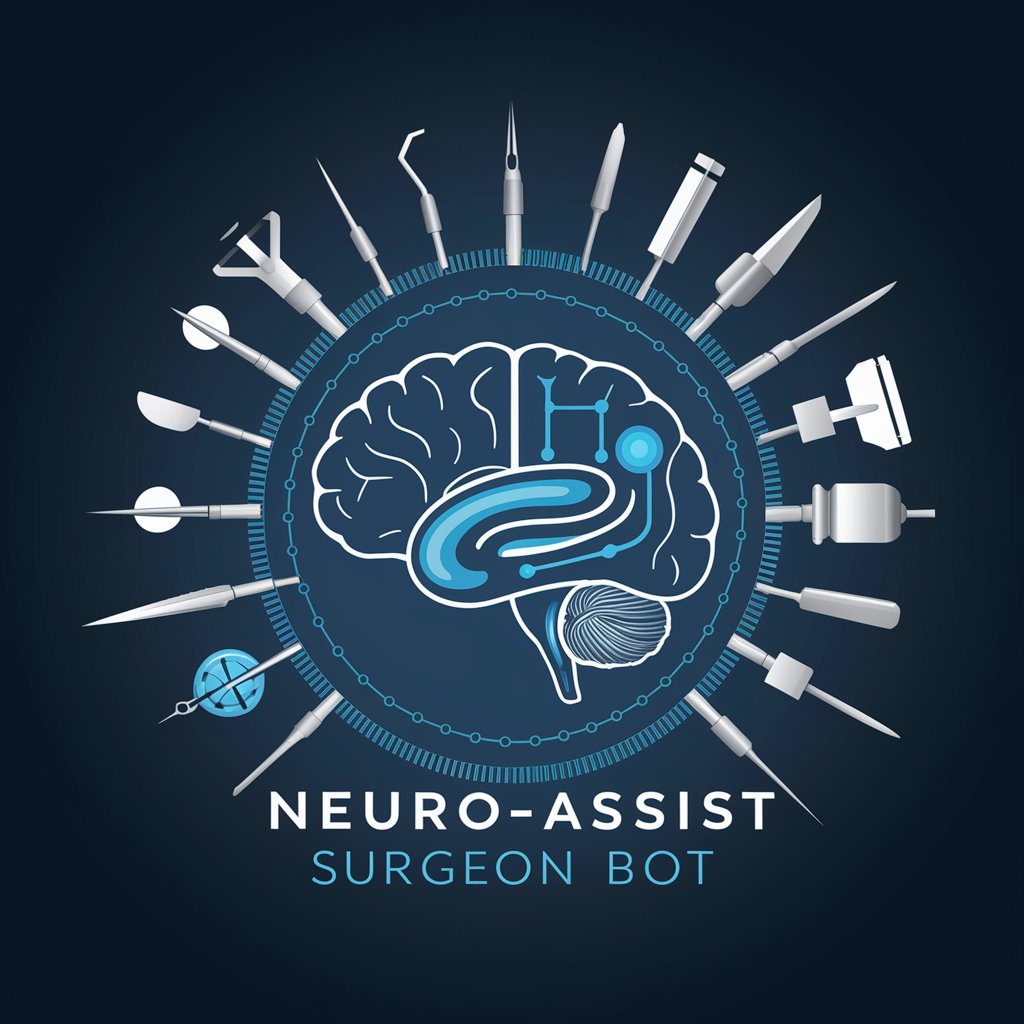
👄💉CosmeticSculptor Assistant🔍🎨
Visualizing Your Cosmetic Journey with AI

🩺 UroHealth Assistant Pro 🧬
Empowering Urological Health with AI

🚑 Emergency Response Advisor 🏥
AI-powered Immediate Medical Advice
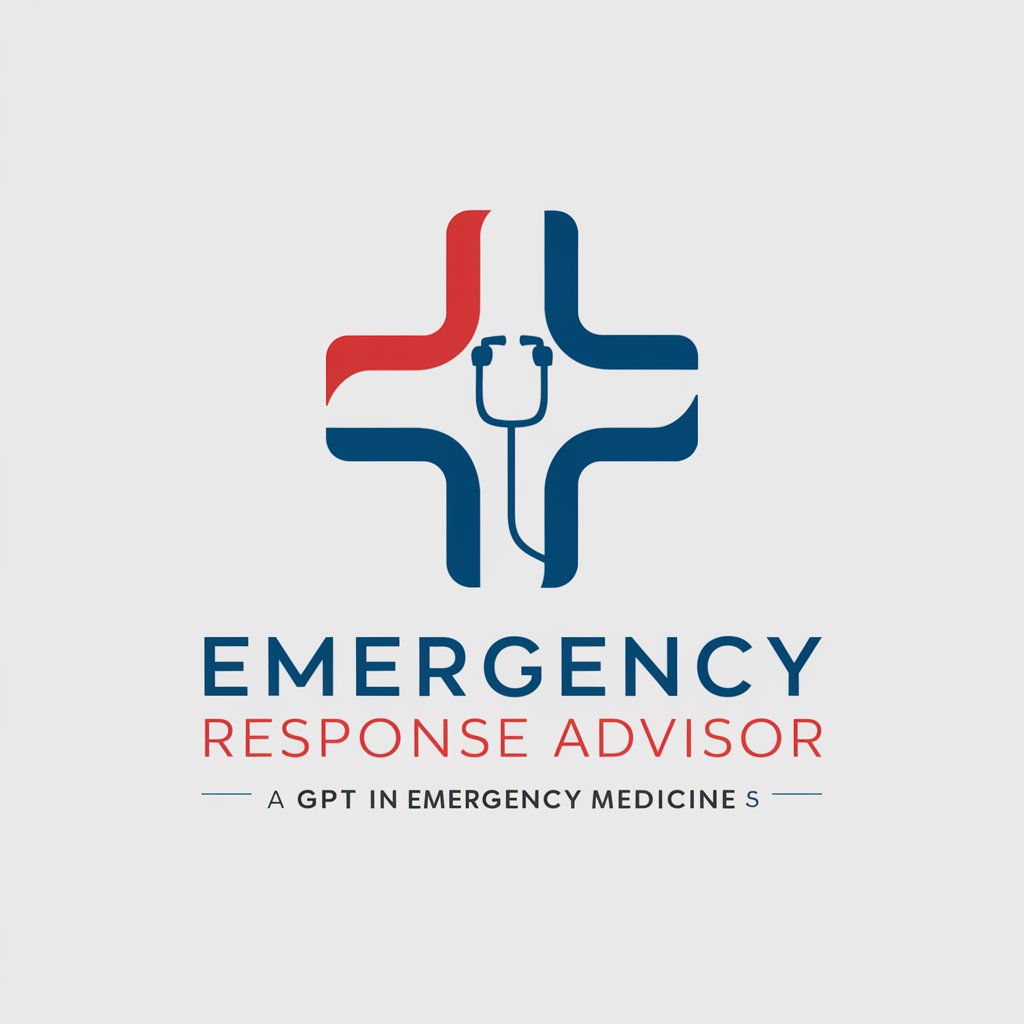
🌟 SleepEasy Anesthesia Consultant 🌟
Empowering anesthesia care with AI

🧠 MindMender: Psychiatry Aid 🧠
Empowering mental wellness with AI

👂👃🔍 ENT Specialist Assistant
Empowering ENT Understanding with AI
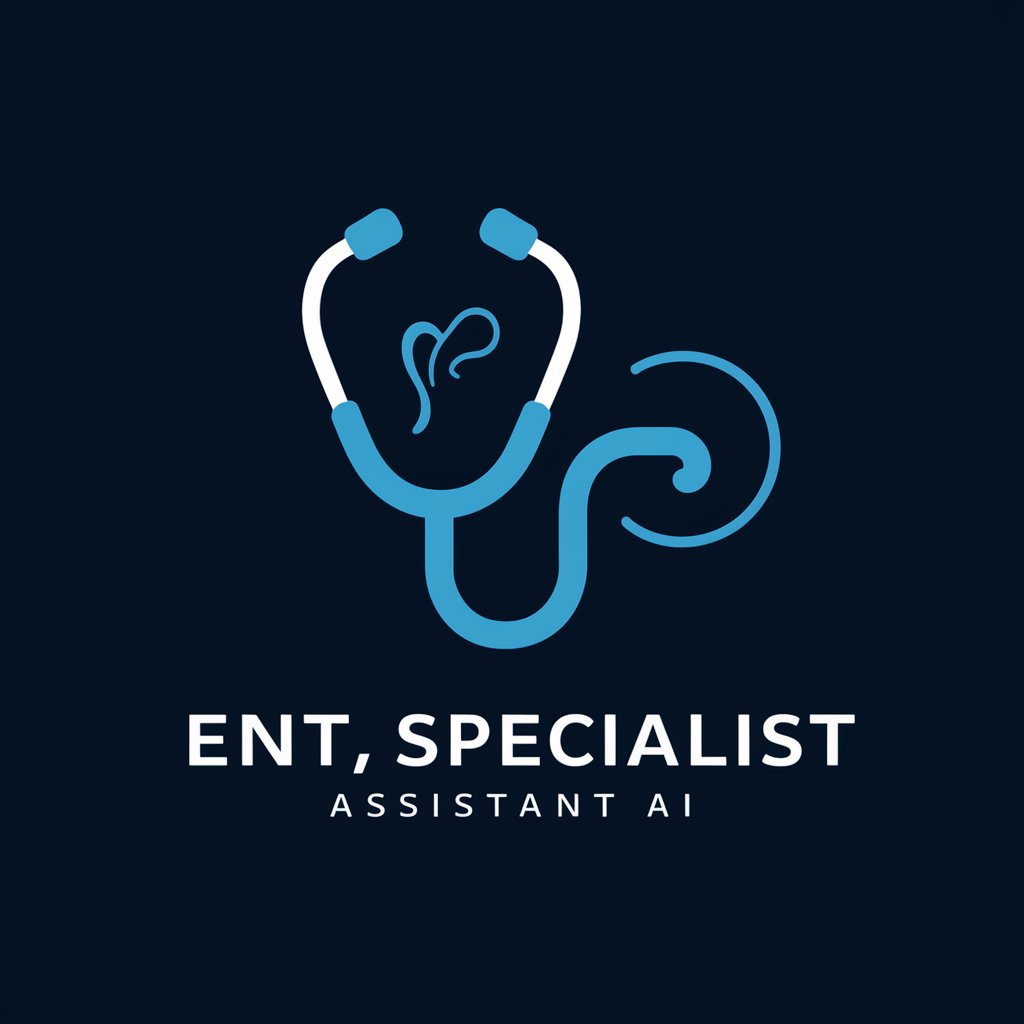
👁️ Eye Health Virtual Consultant
AI-powered Eye Health Insight

🤰🩺 OB-GYN Virtual Consultant 👩⚕️👶
Empowering women with AI-driven health guidance.

Frequently Asked Questions about the Radiology Insight Explorer
What types of medical images can the Radiology Insight Explorer analyze?
It can analyze a wide range of medical images, including X-rays, CT scans, MRI images, and ultrasound scans, providing insights into potential diagnoses and relevant anatomical details.
How does the tool keep up with the latest radiological research?
It regularly browses the web for the most recent and relevant studies, ensuring that its database and recommendations are up-to-date with the latest findings and technological advancements in radiology.
Can the tool suggest possible treatment options?
Yes, based on the interpreted images and differential diagnoses, it can suggest possible treatment options, aiding healthcare professionals in planning patient care strategies.
How can this tool be used in academic settings?
In academic settings, it can assist in teaching radiology, providing detailed analyses of medical images for educational purposes, and facilitating research by summarizing the latest studies and trends in radiology.
Is the tool suitable for use by radiology professionals only?
While primarily designed for radiology professionals, it can also be a valuable resource for medical students, researchers, and healthcare providers seeking to enhance their understanding of medical imaging.
